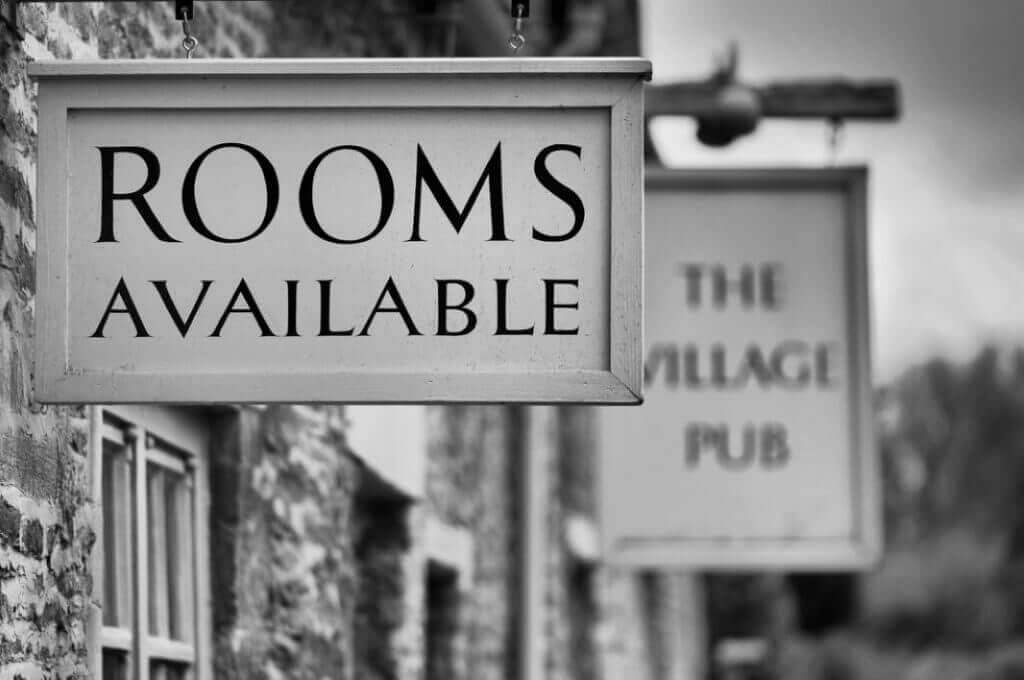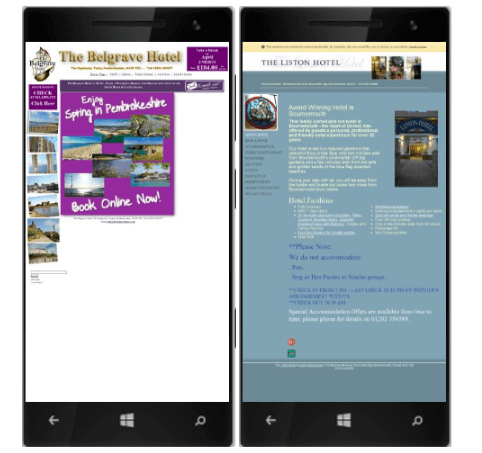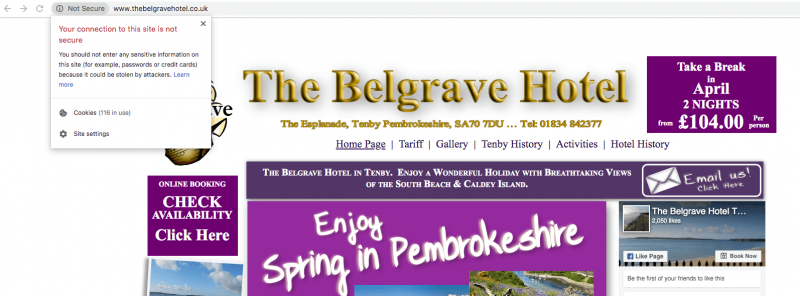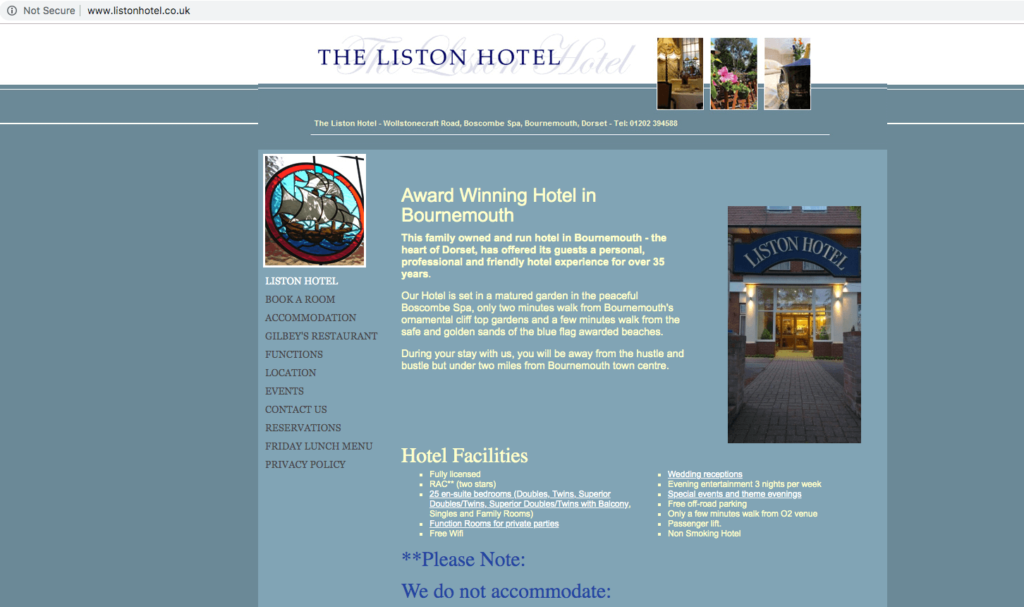
We have a wealth of experience working with established 4 & 5* hotels across the world, providing the design and development of their websites; as well as supporting with their digital marketing activities – all designed with the aim and objective of boosting their #directbooking propositions.
NB: This is an article from UP Hotel Marketing
Over the past couple of years, our agency has also seen a surge in demand from smaller, independent offerings, fed up with being wholly reliant on online travel agents (OTAs) to market and sell their rooms. Some of the properties we have worked with over the past year include Pentrehobyn Hall in Wales, Villa Lena in Tuscany, and Greys Court Cottages in the Cotswolds.
Not only do OTA practices often confuse guests looking to book stays, but there can also be a negative knock-on effect for anyone listed. Perhaps the timing couldn’t be better for hotels, guest houses, villas and B&Bs to look towards marketing directly to their guests.
Shouldn’t every hotel look to own their guests?
Where larger hotels may look towards having an impressive, bespoke website created and marketed to bid against OTAs, smaller hotels may have the concern that they don’t necessarily have as big of a budget or the advertising power to market directly to their guests.
Of course, when thinking logically, it should make perfect sense for any business offering accommodation to want to drive direct bookings to achieve full revenue. So why are smaller hotels and accommodation providers so reliant on OTAs? In addition to concerns around cost, there may also be additional worries concerning OTAs and the missing revenue if they disappeared from channels such as Booking.com or Expedia.
There is no denying that OTAs hold a degree of value, but what are the factors that smaller hotels, accommodations and lodgings may wish to consider nowadays?
- Websites with an internet booking engine (IBE) integrated are affordable for small to medium sized hotels
- By having a website, you can still appear on an OTA site, but (as time progresses) become less dependent upon selling through channels other than through your own site
- Your site can compete effectively against and even above OTAs if you have a #bookdirect proposition in place
- You can market your property more effectively than an OTA
- Trust – not many people would want to go through a 3rd party over dealing directly with the person they wish to deal with
- Guests like to book direct and appreciate perks associated with booking directly such as:
- Free of Bottle of Wine
- Complimentary Upgrade
- Reward Points
- Early check-in/late check-out
- Voucher to dine in the Restaurant
*Not free wifi, as this is a standard and reasonable expectation of any guest
A couple of hotels which lack many of these considerations have been picked at random after discovering availability of their rooms on TripAdvisor and Booking.com.

The Belgrave Hotel in Tenby and the Liston Hotel in Bournemouth

*The website is non-HTTPs – indicating to users that the site is not secure

*The signals to book are poor. With this site also non-HTTPs and marked by Google as not-secure. This does not instil trust from users to trust the site to manage the processing of a card payment for a booking
What steps can your hotel look to take to drive direct bookings?
Put yourself in your demographic’s shoes and the process they might go through to book a room at your property.
How can you attract a potential guest to book direct through your website? Visibility is important, but so is the way you present your organisation.
Your website is your virtual foyer, which creates the first impression for guests. If your website looks old and tired, what impression does this present of your hotel when a guest walks through the door? A poorly designed and badly structured website will only serve to detract from a guest using your site as a portal to book.
Some things to consider, if your small hotel isn’t of the required standard:
- Website – Adopt a website with a clean, responsive design which renders accordingly on mobile and tablet devices
- Booking Engine – Incorporate an IBE on the hotel website to manage bookings. There are a number of affordable options which aren’t too costly, such as TheBookingButton and Little Hotellier. Look to ensure that the styling of the booking engine is on-brand, so that users trust the booking site if your website redirects the user to another URL.
- What is Your Direct Booking Proposition? – Are the signals on your website driving the user to book direct with you? What is your direct booking proposition. Only offering “free wifi” won’t be good enough. This is expected as standard nowadays, just as running water is.
- Are you marketing your hotel effectively? – There are a number of sources available as options to boost the exposure of your hotel i.e. organic, paid, referral, meta, email and direct, remarketing. How many of these have your hotel explored to date and have you asked for support?
No hotel is too big to market direct, so long as you have an impressive website and internet booking engine (IBE) supported by an effective digital marketing strategy. to develop brand equity and exposure of your proposition. If you are charging approx. £80 per night for a room and paying out £12 per @15% commission to booking.com; why not look to secure a bigger share of revenue by securing the booking directly for a cheaper cost per acquisition?
Our agency has worked with a number of hotels to develop an algorithm which can be used to calculate how much your hotel can save in commission and lessening the amount you advertise with an OTA. Before lessening exposure through an OTA however, our team would always advise addressing at least points 1-4 listed above.



